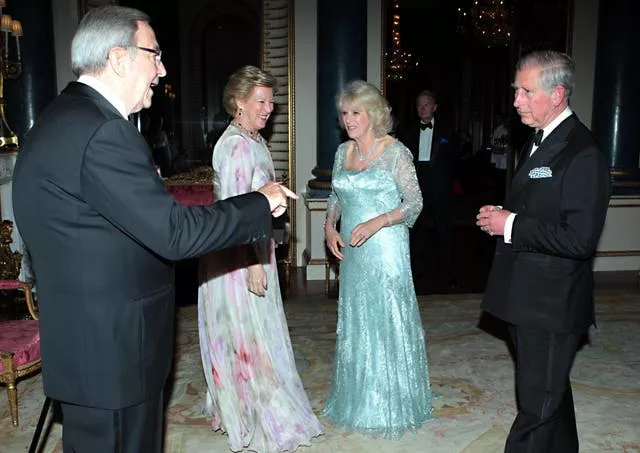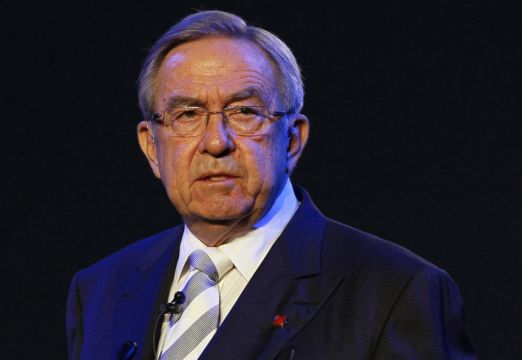Britain's Queen Camilla will lead members of the British royal family at a service of thanksgiving for the late King Constantine of Greece.
Britain's King Charles, who is being treated for cancer, will miss the service at St George’s Chapel, Windsor Castle, in honour of his close friend and second cousin Constantine II, the former ruler and last king of Greece.
Charles has reportedly sought spiritual advice from his friend Archimandrite Ephraim, Abbot of the Greek Orthodox Vatopedi monastery on Mount Athos.

Abbot Ephraim is said to have told Greek media outlets: “Yes, he has been in contact since the diagnosis and I believe he’ll overcome it. Charles has a spiritual sophistication, a spiritual life.”
Charles, 75, who was diagnosed with an undisclosed form of cancer just over a fortnight ago, is not carrying out public duties while he has treatment.
Constantine was a first cousin once removed and sailing partner of the late Prince Philip, and died at the age of 82 in January last year, decades after being toppled from the throne in a military coup.
Charles had a close friendship with Constantine, choosing him as a godfather for his son William, now the Prince of Wales.

The former king was also godfather to the daughter of Prince and Princess of Michael of Kent, Lady Gabriella Kingston.
Camilla and other family members will be joined by the late king’s widow Queen Anne-Marie, their eldest son, Crown Prince Pavlos and other members of the Greek royal family for the service in the nave of the 15th century chapel.
Charles was unable to attend Constantine’s funeral in Athens last year because of commitments which included meeting the president of Cyprus. The Princess Royal represented him at the service.

Constantine, who died in an Athens hospital, acceded to the throne at the age of 23 in 1964.
The young king, who had won Olympic gold in sailing, was initially hugely popular.
By the following year he had squandered much of that support with his active involvement in the machinations that brought down the popularly elected Centre Union government of prime minister George Papandreou.
The episode, still widely known in Greece as the “apostasy” or defection from the ruling party of several politicians, destabilised the constitutional order and led to a military coup in 1967.

Constantine eventually clashed with the military rulers and was forced into exile.
The dictatorship abolished the monarchy in 1973 and a referendum after democracy was restored in 1974 dashed any hopes Constantine had of reigning again.
He lived in exile for many years in Hampstead Garden Suburb in north London, before returning to his home country in 2013.







